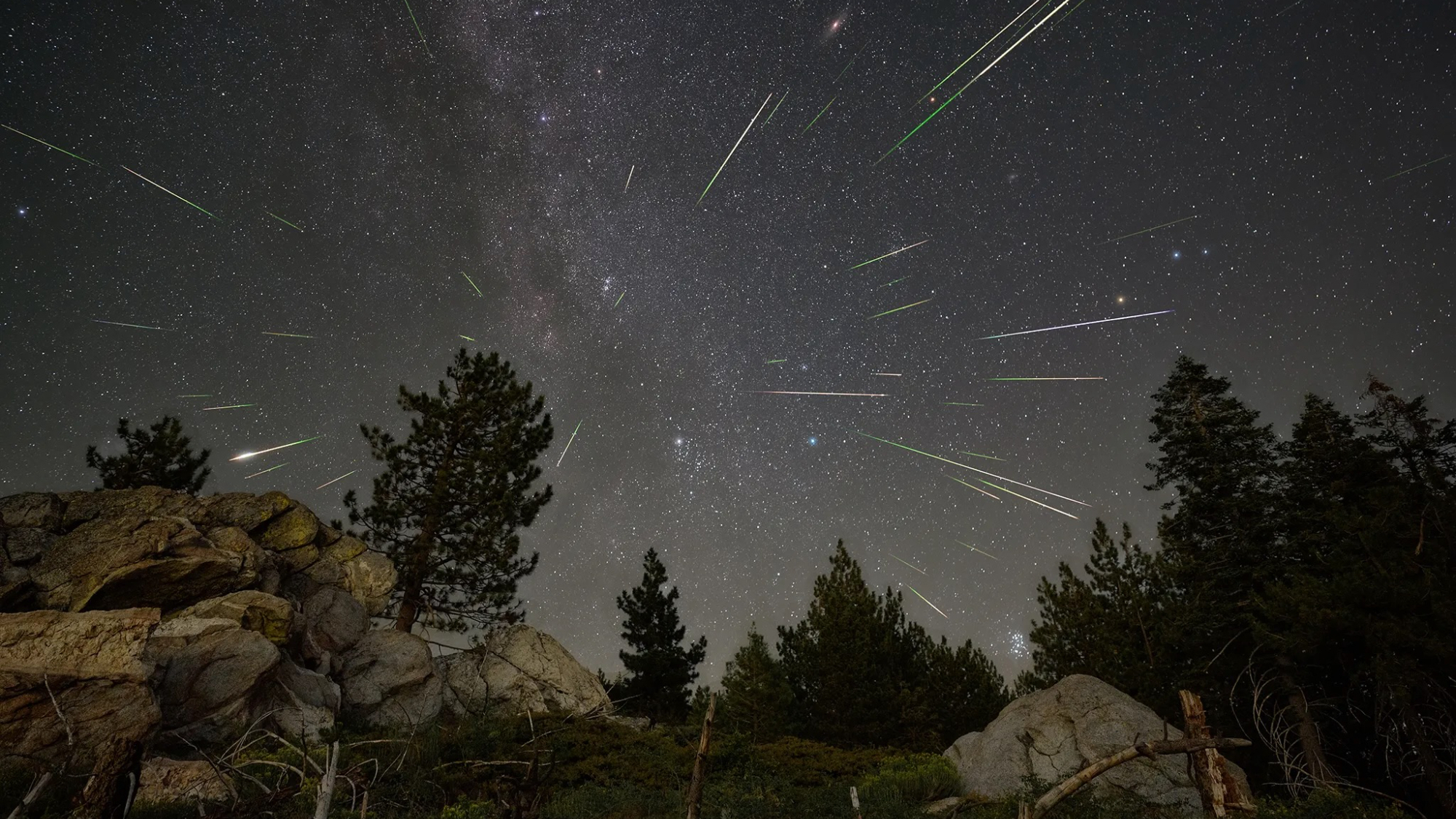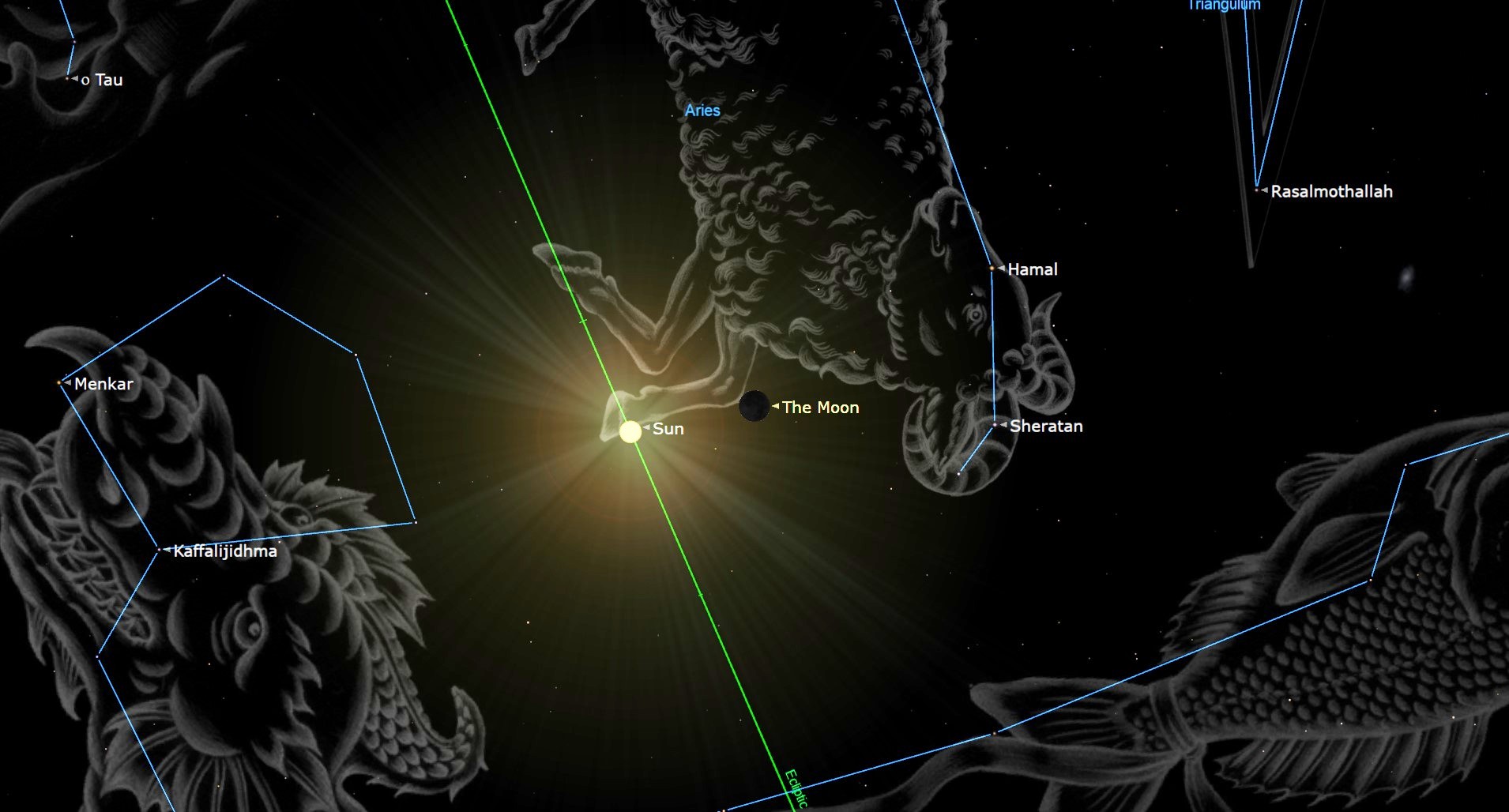Black Holes: Dark and Deadly
There's something about black holes that draws in scientists and the rest of us terrestrial dwellers, besides of course their tremendous gravity. It could be because nothing has yet escaped one to tell us what's in that shadowy abyss. Or that no one has gotten close enough to peek inside these cosmic wells.
In an interview with SPACE.com, astrophysicist Neil deGrasse Tyson, the Frederick P. Rose Director of the Hayden Planetarium at the American Museum of Natural History, discusses the mysteries surrounding these exotic entities and the reason he chose to name his new book, "Death by Black Hole and other Cosmic Quandaries."
- Video: All About Black Holes
SPACE.com: What is a black hole?
Neil deGrasse Tyson: A black hole is a region of space where so much matter is crammed into it that the gravity is so high that not even light can escape it.
SPACE.com: Is that why we call it a black hole?
NdT: If light can't come out, then it's black. And light is the fastest thing we know, so if you fall in and you can't travel faster than light, that's it, you're stuck. So it's black and it's a hole, so we call it a black hole.
SPACE.com: How do they form?
Get the Space.com Newsletter
Breaking space news, the latest updates on rocket launches, skywatching events and more!
NdT: There are two broad categories of black holes. One of them is the monstrous black holes that we find in the centers of galaxies. Those could be up to a million times the mass of the Sun, and we don't completely understand how they form. But all of best data tell us that we got one in the middle of every galaxy.
Then there's a much smaller kind, in some ways a more dangerous kind, that is the end product of the life of a star. And those could be in your way as you journey across the galaxy.
SPACE.com: Is that why they are more dangerous?
NdT: Yeah, exactly because you can sort of accidentally stumble on it. The ones that we know about are rendered visible because they happen to be next to another star where they orbit each other in space and that other star in many of these cases is losing its outer gaseous material. In a way it's getting flayed by the gravity of the black hole. And as the gas spirals down, kind of like water down a toilet bowl, or when you pull the drain on any body of water, you see the water begin to circle and as it goes down the hole, the gas from the nearby star does that too.
As it spirals down, it begins to glow just before it's lost forever in the black hole. So we see glowing gas that has been removed from nearby stars so that's kind of like the smoking gun that there's a black hole there. All the ones we know about that are scattered around the galaxy are made visible to us by this process.
SPACE.com: What varieties of black holes are there?
NdT: There are different ways to split them up. I don't make a big deal of that in the book. There are black holes that spin and black holes that don't spin at all. The two broadest categories are simply the black holes that come from the death of a star and then the kind that you find in the centers of galaxies. That's the broadest concept that we need to know.
SPACE.com: What happens if you jump into one?
NdT: If you're the one who took this one way trip, as you descend down towards its center you begin to feel the strength of gravity increase at your feet compared with the gravity at your head.
SPACE.com: Will you feel gravity significantly less at your head?
NdT: Yeah, what happens is that the difference in gravity becomes so great that your body initially stretches a little bit. There's nothing wrong with that sensation, which is what you do every morning when you wake up from bed, get out of bed. But the stretching sensation is unrelenting. And it reaches a point where the strength of the difference in gravity becomes greater than the strength of the bonds or the molecules that hole your flesh together. And the moment that happens, that's it, that's kind of the end of you. You snap into two pieces. It's likely to happen at your midsection, at the base of your spine.
Then those two pieces, they'll begin to feel the same effect as you continue to descend towards the center of the black hole. And they then snap into two pieces and this continues on down. You go from one to two, to four to eight as you approach the center of the black hole.
SPACE.com: So you're going to turn into infinite pieces?
NdT: Not only that. If you can imagine that, it's worse than that because the very fabric of space-which we learned from Einstein is curved due to gravity-in the vicinity of a black hole is like a funnel and so in fact as you fall toward a black hole, you're being funneled through the fabric of space. So you're not only being stretched, you're being extruded like toothpaste through a tube.
SPACE.com: Do your pieces come out the other end?
NdT: That was the science fiction writer's dream-that you fall in one side and come out the other side. Not until recently, a couple of years ago, Stephen Hawking demonstrated that all the information that falls into a black hole is recoverable information. So in other words, the black hole doesn't lead into someplace else where things exit.
In this case, the best way to think of information is you're composed of a number of electrons, protons, neutrons, quarks and such. There's an inventory of your particle composition. Let's just call that information for you. Well it turns out, that if you fall in, all that information remains there inside the black hole, and Hawking was able to demonstrate this mathematically.
SPACE.com: How exactly did he demonstrate this?
NdT: People had suggested that once you fall into a black hole, you basically leave this universe and so all bets are off. You're done. But what we've known since the 1970s is that there's such a thing as a Hawking radiation, and this is a kind of an interesting, spooky phenomenon.
You may remember the equation E=mc2, which we all learn in elementary school even before we know what it does, but it's the recipe to exchange a quantity of matter with a quantity of energy and back again.
We don't have daily experience with this equation because things that happen in the life of a human, the conditions of your environment are not such that E= mc2 gets revealed in any measurable way. But if you go to centers of stars, if you go to the big bang, if you go to the very strong gravity field of a black hole, the conditions are just fine for that and so what happens is that the gravity field of a black hole is so intense that particles can pop into existence from the energy of that field. Again this is according to E= mc2. Well this is called Hawking radiation, and this was a profound result because it actually said that black holes can evaporate by this method, that they're not completely black.
You can actually escape a black hole, but it's kind of like cheating. The particle isn't rising up from the center and crossing the black zone and coming into our universe. The way it's happening is the energy field created by the gravity of the black hole and that gravity is created by the matter it's eaten throughout its life. The field produces a particle. And every time the field produces a particle, the black hole weighs less.
That's been known since the 1970s, so a recent result said that if you take the inventory of the particles that issue force from the gravity field and compare it with everything that was eaten throughout the life of a black hole, that it will match one for one. So somehow the gravity field has a memory, has some kind of an understanding has access to the information that we thought was gone forever. And I find that remarkable. But it also said that you can't just go somewhere else in the universe, so it kind of closed the creativity door for science fiction writers.
SPACE.com: How will researchers study black holes in the future and what kind of instruments will give us more information?
NdT: Black holes are such an exotic expression of gravity that right now there are gravity detectors that are being built to try and detect when things happen in the vicinity of a black hole such as if a black hole eats a star or if two black holes collide with each other. One way to observe that is what the material is doing in the vicinity of a black hole: Is it giving off light? Do we have a telescope that can detect the light?
But it's not only light that's emanating from it; it's sort of gravity waves. Einstein predicted that there should be such a thing as gravity waves that would reveal themselves under exotic gravitational events such as the collision of black holes. So you have this gravity telescope-this is just as good a way to describe it-looking for gravity waves for just these kinds of signatures.
Because of the phenomenon that goes on in the vicinity of black holes you need telescopes that are particularly tuned to that kind of phenomenon. That phenomenon gives off ultra violet light, x-rays and even gamma rays, so you need a telescope that's honed for those parts of the spectrum.
There's an accretion disk that will circulate in the vicinity of a black hole before it descends out of you forever. And there's a whole cottage of industry of astrophysicists who worry about the nature of that accretion disk what it's made of, how it works, how thick it is. How does the energy get out? What's at the center? What's at the source of energy?
SPACE.com: In the book you say that death and destruction is the business of black holes.
NdT: If you bring anything near them that's what they do, but if you leave them alone they kind of quietly minding their own business.
SPACE.com: Do you think we live inside of a black hole?
NdT: No. There's sort of a philosophical idea that the entire universe is a black hole but on that level it's more semantics than scientific.
SPACE.com: What's the temperature like inside a black hole?
NdT: Who knows? Nobody knows. We presume it could be anything but we otherwise don't know. It's not a measurable thing because when you measure temperature, you're measuring the vibrations of molecules that are in touch with your thermometer. And so to get in there, you have to stick the thermometer through and then never come back out again. It'd be a one-way experiment. You'll know, but you won't be able to tell anybody about it.
SPACE.com: You call you're book "Death by Black Hole," yet it's a collection of essays only one of which is about black holes. What prompted you to choose that chapter's title as the book title?
NdT: Well, that's the importance of the subtitle, "Death by Black Hole: And Other Cosmic Quandaries." And so the "Death by Black Hole" essay is in a section that is all the ways the universe turns bad.
One comment about the essays. They are really designed for you to curl up on in front of the fireplace or in front of your favorite lamp or your favorite desk chair, reading chair, and just drink in the universe. My hope is that the reader has become so enchanted by the universe that they want to keep learning more. So many people think of the universe as this other worldly thing, that it does not connect back to them in any kind of way that's interesting, but that's a lot of energy and effort demonstrating connection.
SPACE.com: But somehow you found that essay and the idea of black holes important enough to make it the book title.
NdT: Not really important, but it was just kind of a fun title. I mean, you can't not put that as the title of the book. I could have said, oh it's 10 years of essays from my "Natural History" magazine, but that's not as fun. I did make sure that among the 10 years of essays that I had to choose from, these represent quandaries that had to be resolved, either historically or today. If you look through you'll see each essay is addressing some challenge of understanding or of execution.
SPACE.com: Do you think we will ever directly "see" black holes?
NdT: There's no obvious way to see them directly. But if they don't otherwise have something feeding them material, one way to know that they're there is how they distort the path of light from objects behind.
It's almost as though you take someone who has very poor eyesight, punch out the lens of their eyeglasses and then slide it across your field of view and you'll see that things will look very different through the thick glass than they do from outside the thick glass. That distortion is simply what the glass is doing to the light that's trying to pass through. And so with a black hole, it will also distort the light from behind it, that's trying to pass through, and so if you're careful you might be able to detect one of these headed your way simply by the distortions of the background galaxy.
SPACE.com: What do you think is the biggest mystery surrounding black holes?
NdT: I think the biggest uncertainty is our current laws of physics that say that the material that became the black hole continues to collapse to a point that is infinitesimally small in the center. No matter how large it started out, there's no known laws of physics that would resist the strength of that gravity to collapse. And to say that it's infinitesimally small would then mean that it's got infinite density.
You put any amount of matter in a small volume, it gets more and more dense. I want to know what's happening at the center of the black hole. There's a word for it, it's called the singularity. That remains a mystery, and string theorists, they are kind of in business to solve that.
SPACE.com: Why do you think this knowledge of black holes is important in the grand scheme of things?
NdT: Well, there's two ways to answer that. How does it help the person on the street? Well, it doesn't. It's that simple. It doesn't. It doesn't help you find food if you're looking for food. It doesn't help pay the rent if you can't pay the rent. However, it does give you something else to think about in your day's routine. It does allow you to look up at night and recognize that we're part of this larger cosmos. And these are thoughts that are enriching for a culture.
There are cultures that do not have traditions of exploration. If you visit them you'll know it immediately, because no one is thinking about the future, everyone is thinking about just that moment. No one is planning for a new way to live as technology transforms their lives, and you realized how impoverished they are for not having those thoughts. And so I feel fortunate that I live in a country that on some level values exploration.
- Top 10 Star Mysteries
- VIDEO: Black Hole: Warping Time & Space
- The Strangest Things in Space
- All About Black Holes
Join our Space Forums to keep talking space on the latest missions, night sky and more! And if you have a news tip, correction or comment, let us know at: community@space.com.










